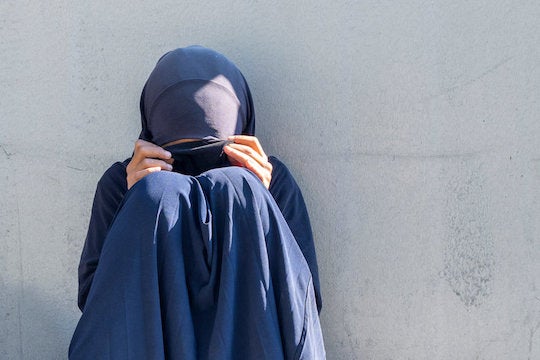HOUSTON – (April 26, 2022) – Texas has led American efforts for resettling Afghan evacuees, but arriving in the United States is merely the beginning of the resettlement process, and integration challenges are especially pronounced for Afghan women refugees, according to a new brief by Rice University’s Baker Institute for Public Policy.
The future of Afghan refugees in the U.S. will also be the focus of a Baker Institute event hosted by the institute’s Women’s Rights, Human Rights and Refugees Program on April 28. A panel of experts will examine the hurried evacuation mission, the subsequent resettlement process and the integration of Afghan refugees in Houston and elsewhere.
The American withdrawal from Afghanistan in 2021 saw one of the largest and swiftest humanitarian evacuation missions in U.S. history, according to the brief’s authors. As the Taliban reclaimed power, Afghans fled their home country – both to neighboring states by foot and via evacuation by the U.S. and its allies to be ultimately resettled as refugees.
The arrival of any group of refugees into a new community represents the beginning, not the end, of a resettlement journey, said Kelsey Norman, director of the Women’s Rights, Human Rights and Refugees Program. They will start an integration process that includes finding homes and employment, gaining access to health care and education systems and learning a new language.

“While refugees are incredibly resilient, many have faced traumatic and harrowing experiences while fleeing or en route to their new homes, meaning that they must confront these bureaucratic and legal challenges while also dealing with the strain of emotional and mental health difficulties,” Norman and co-authors Ana Martin Gil and Fazal Muzhary wrote.
Texas has led resettlement efforts in the country, as the state received almost 10,500 Afghan evacuees as of the end of February, according to the brief.
“In many ways Texas is an ideal location to receive Afghan refugees due to the scale of its existing resettlement infrastructure and the presence of established Afghan communities, especially in Houston, which has received the largest number of Afghan evacuees (5,117) to date, followed by San Diego,” the authors wrote.
Despite all the challenges, resettlement also brings new opportunities that can be beneficial to refugees and the communities that host them, the authors argue. The New York Times, for instance, chose to resettle their Kabul bureau staff members and their families in Houston.
“(Refugees) contribute to the cultural diversity of American society and fill gaps in our labor market,” the authors wrote. “Cosmopolitan cities like Houston have witnessed firsthand the benefits of welcoming refugees. From the cultural renewal of neighborhoods to the development of innovative restaurants, enterprises and community organizations, refugees are a boon to our city and nation.”
Afghans are currently able to apply for temporary protected status that helps avoid deportation, but this measure fails to provide a long-term solution as it does not grant lawful permanent residence, according to the authors.
“The best way forward is for Congress to pass the Afghan Adjustment Act, which would offer a straightforward path for Afghan parolees to apply for permanent residence one year after their arrival,” they wrote. “This approach has been used several times in the past – for Vietnamese and other South Asian evacuees after the Vietnam War in 1977, Chinese refugees who fled communist China in 1965 and Cubans who fled after the Cuban Revolution in 1966.”
Afghan women will have more opportunities in the U.S. than in Taliban-led Afghanistan, but they also face pronounced integration challenges, Norman said. Resettlement agencies often focus on providing employment for men and therefore Afghan women remain isolated in their homes. This leaves women with fewer opportunities to engage in English-language learning or build relationships in their new communities.
“This isolation and precarity can compound over time and lead to mental health issues,” the authors wrote. “It also puts refugee women at greater risk of domestic violence. Resettlement agencies, like Interfaith Ministries in Houston, have developed programs such as the Women’s Empowerment Group that attempt to prevent the isolation of refugee women – including Afghan women and women of other nationalities.”
To learn more about the refugees’ integration process and the related challenges and opportunities, view the Baker Institute brief or join the Women’s Rights, Human Rights and Refugees Program event on April 28.

